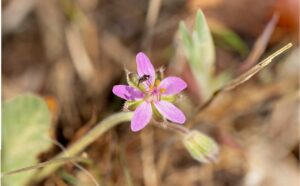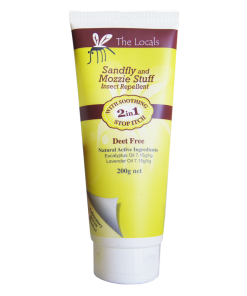Mosquitoes can be a nuisance, but you don’t have to rely on chemical repellents to keep them at bay. Many plants not only add beauty to your garden but also naturally repel mosquitoes. Here’s a guide to some effective plants, including a few native to Australia, that can help you enjoy your outdoor spaces without the pesky bites.
Here’s our list of the 8 Best Natural Mosquito Repellent Plants
1. Eucalyptus (Eucalyptus spp.)
Why It Repels Mosquitoes: Eucalyptus leaves contain essential oils with a strong aroma that repels mosquitoes and other insects.
Native to Australia?: Yes, Eucalyptus trees are native to Australia and are found throughout the country.
Best Placement: Eucalyptus trees thrive in full sun and well-drained soil. Due to their size, they are best suited for larger gardens.
Additional Benefits: Eucalyptus oil is widely used in medicinal and therapeutic applications, including cough drops, ointments, and insect repellents.

2. Kakadu Plum (Terminalia ferdinandiana)
Why It Repels Mosquitoes: Kakadu Plum has a strong aroma and high vitamin C content, which can help deter mosquitoes.
Native to Australia?: Yes, it is native to northern Australia.
Best Placement: Kakadu Plum prefers well-drained soil and full sun. It can be grown in garden beds or large pots.
Additional Benefits: The fruit is highly valued for its nutritional and medicinal properties, including its high antioxidant content.

3. Lavender (Lavandula spp.)
Why It Repels Mosquitoes: Lavender contains essential oils that can disrupt a mosquito’s sense of smell, making it less likely to land near you.
Native to Australia?: No, Lavender is native to the Mediterranean region but is well-adapted to Australian gardens.
Best Placement: Lavender thrives in full sun and well-drained soil. It is perfect for garden beds or pots.
Additional Benefits: Lavender’s pleasant fragrance is used in aromatherapy and in making relaxing sachets and potpourri.

4. Marigolds (Tagetes spp.)
Why It Repels Mosquitoes: Marigolds emit a scent that mosquitoes find unpleasant. They can also deter other garden pests.
Native to Australia?: No, Marigolds are native to the Americas but are commonly grown in Australia.
Best Placement: Marigolds prefer full sun and well-drained soil. They are ideal for planting near patios or entrances.
Additional Benefits: Marigolds add vibrant colour to your garden and can help protect other plants from pests.

5. Citronella Grass (Cymbopogon citratus)
Why It Repels Mosquitoes: Citronella grass has a strong lemon scent that is well-known for its mosquito-repelling properties.
Native to Australia?: No, Citronella Grass is native to tropical Asia but grows well in Australian climates.
Best Placement: It thrives in warm climates and should be planted in full sun with well-drained soil. It can be grown in garden beds or large pots.
Additional Benefits: Citronella is often used in candles and sprays for additional mosquito control. Its fresh lemon aroma is also refreshing.

6. Rosemary (Rosmarinus officinalis)
Why It Repels Mosquitoes: Rosemary has a woody scent that repels mosquitoes and can be a natural deterrent in gardens.
Native to Australia?: No, Rosemary is native to the Mediterranean region but is well-suited to Australian gardens.
Best Placement: Rosemary prefers full sun and well-drained soil. It can be grown in garden beds or pots.
Additional Benefits: Rosemary is a popular culinary herb that adds flavour to dishes and has various medicinal uses.

7. Mint (Mentha spp.)
Why It Repels Mosquitoes: The strong aroma of mint can deter mosquitoes. Different varieties offer similar repellent effects.
Native to Australia?: No, Mint is native to Europe and Asia but grows well in Australian gardens.
Best Placement: Mint thrives in partial shade to full sun and prefers moist soil. It is often grown in containers to control its spreading.
Additional Benefits: Mint is a versatile herb used in cooking and beverages, and it can also be used in home remedies.

8. Thyme (Thymus vulgaris)
Why It Repels Mosquitoes: Thyme contains essential oils that are effective at repelling mosquitoes.
Native to Australia?: No, Thyme is native to the Mediterranean but is widely grown in Australia.
Best Placement: Thyme prefers full sun and well-drained soil. It can be grown in garden beds or pots.
Additional Benefits: Thyme is an excellent culinary herb used in cooking and has medicinal properties.

The Bottom Line
Incorporating these mosquito-repelling plants into your garden not only enhances its beauty but also provides a natural defence against those pesky insects. Many of these plants offer additional benefits making them a valuable addition to your outdoor space. Whether you’re growing them in garden beds or pots, these plants will help you enjoy a more comfortable and pleasant environment.








